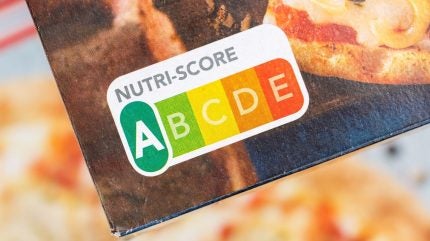
Portugal’s Ministry of Health is looking to roll out the Nutri-Score traffic-light labelling system for food products sold in the country.
The new policy is being introduced to establish a single, simplified label onto foods and to help “promote healthy eating”, the policy paper read.
Up until now, there has been no unified nutritional label for food products, with manufacturers using a range of different labels, “which can make it difficult or confusing for consumers when making their choice”.
Explaining the rationale for adopting the Nutri-Score, the ministry cited its uptake in “a wide range of European Union countries” as well as by several food businesses in Portugal.
Swiss manufacturing giant Nestlé adopted the labelling system for its Portuguese products in 2020.
“In this way, it is positioned as the simplified nutritional labelling system with the best conditions to be adopted in Portugal”, the ministry said.

US Tariffs are shifting - will you react or anticipate?
Don’t let policy changes catch you off guard. Stay proactive with real-time data and expert analysis.
By GlobalDataFood manufacturers’ adoption of the labelling system will be optional.
Between now and July, the ministry will work together with the Director-General for Health, Rita Sá Machado, and interested businesses, to figure out how best to implement the Nutri-Score.
This process will involve assessing developing a “procedural support system” to help companies adhere to the new labelling, developing “a communication campaign” to promote business adoption of the Nutri-Score as well as educating consumers on how to read the label.
The ministry will also work to develop a system “to monitor and evaluate” its implementation in Portugal.
The Nutri-Score system was first introduced in France in 2017 and is also in use in Belgium and Germany by retailers, as well as manufacturers Danone and General Mills. It was also launched in the Netherlands earlier this year.
The label determines the nutritional value of foods using an alphabetical traffic light system, ranking goods on a scale of A to E.
While it has been rolled out successfully in a number of countries, it has not been well received everywhere.
In 2022, Italy’s Competition Authority (AGCM) banned the system, as it believed the label to be misleading.
Companies can no longer use it in Italy unless detailed information on the method behind the Nutri-Score calculation is also printed on the label.
That same year, a committee was set up to look into modifying the Nutri-Score’s algorithm to improve how the system calculates the nutritional quality of foods.
The EU has also been working to adopt a single labelling system across the bloc for several years but has so far been unsuccessful in reaching an agreement between Member States.
Belgium plans to delve back into the topic via a symposium later this month as part of its EU Council presidency, which runs until the end of June.



